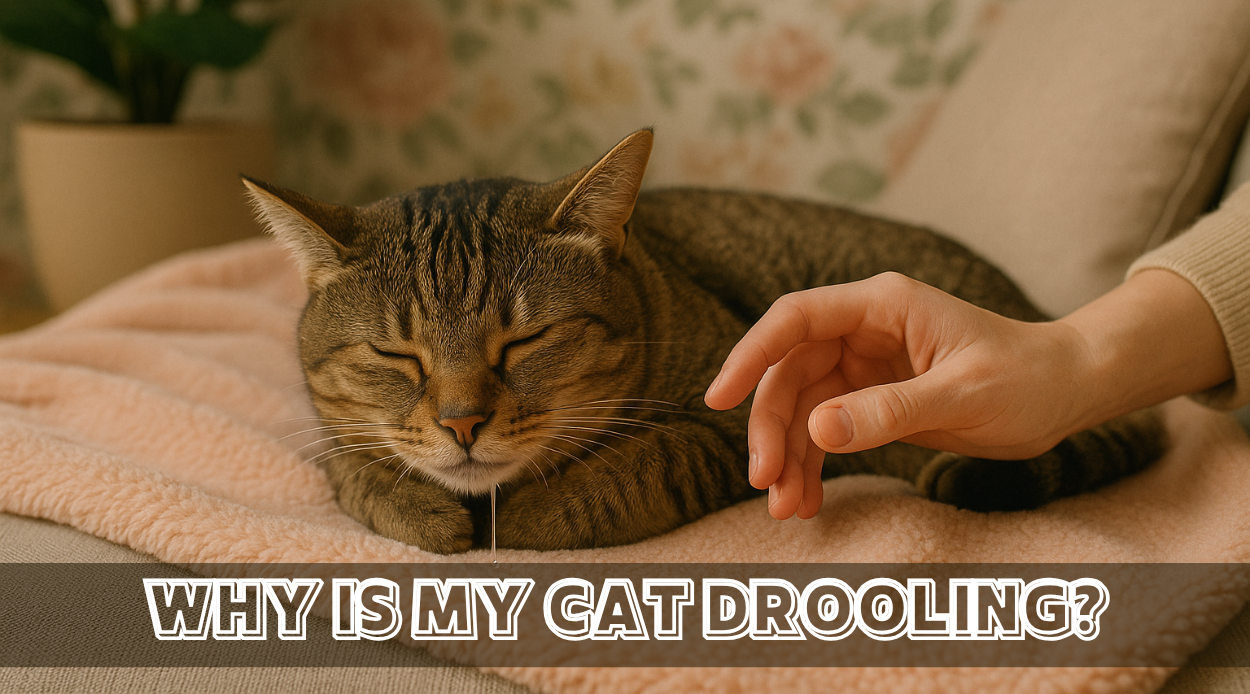Cats are usually known for being tidy and composed, so it can be a bit alarming to notice your feline friend drooling. While drooling can be completely harmless in some cases, it might also indicate an underlying issue that needs attention. Let’s explore the reasons behind cat drooling, when it’s a cause for concern, and what you should do about it.
Is It Normal for Cats to Drool?
Occasional drooling can be normal, especially when your cat is relaxed or purring. Some cats even drool when they’re kneading a soft blanket or curling up in your lap. However, persistent, excessive, or sudden drooling is usually not normal and could signal dental problems, toxic ingestion, or even more serious health conditions.
Understanding Cat Drooling
Why Is My Cat Drooling?
Cats drool for several reasons. Mild drooling can happen during moments of extreme contentment. However, if your cat is drooling excessively or suddenly, this could be a warning sign of oral health issues, nausea, or even poisoning.
Why Does My Cat Drool?
Cats may drool due to:
- Dental disease (gingivitis, tartar buildup, abscess)
- Oral injuries or foreign objects stuck in the mouth
- Motion sickness or nausea
- Tasting something unpleasant
- Emotional triggers (like intense relaxation or stress)
Why Would a Cat Suddenly Start Drooling?
Sudden drooling in cats is often a red flag. It may indicate something new or urgent, such as a recent injury, chemical exposure, insect sting, or a stuck object in the mouth or throat. A change in behavior like this should not be ignored.
When to Worry About Drooling
Cat Drooling a Lot – Should You Be Concerned?
Yes. While minor, infrequent drooling might not be an issue, heavy or continuous drooling should prompt concern. Excessive saliva can signal discomfort or distress and is commonly associated with oral infections or toxic exposure.
When Should I Be Worried About Drooling?
Be concerned if your cat:
- Is drooling consistently or heavily
- Has foul-smelling breath
- Refuses to eat or drink
- Has bleeding gums or mouth ulcers
- Shows changes in behavior or hides more than usual
Common Causes: Medical & Emotional Triggers
Do Cats Drool When They Are Sick?
Yes, sick cats often drool. Dental issues like periodontal disease are among the top reasons. Cats with respiratory infections, kidney failure, or gastrointestinal distress may also drool more than usual.
Do Cats Drool When Happy?
Surprisingly, yes—some cats drool slightly when they’re extremely relaxed, content, or purring. It’s often accompanied by kneading behavior and a glazed, happy expression. However, this type of drooling is typically light and short-lived.
Quick Facts & Myths
Is It True That Cats Drool?
Yes, cats do drool—but not usually as much as dogs. The myth that cats don’t drool likely stems from their fastidious grooming habits and the subtlety of normal drooling episodes. It’s rare but not unheard of for cats to dribble a little saliva when they’re in specific emotional states or dealing with health issues.
Actionable Advice
What To Do If Your Cat Drools
- Check Their Mouth: Gently examine your cat’s mouth for foreign objects, wounds, or swelling.
- Observe Behavior: Note changes in eating, grooming, or behavior patterns.
- Check for Toxins: Look around your home for any chewed-up plants, cleaning products, or chemicals.
- Hydration: Ensure your cat is drinking water.
- Do Not Delay: If in doubt, contact your vet.
When to See a Vet for Cat Drooling
Schedule a vet appointment if:
- Drooling is continuous or profuse
- There’s visible swelling or bleeding
- Your cat is lethargic or not eating
- Bad breath accompanies the drooling
FAQs About Cat Drooling
Q: What are common medical reasons for drooling in cats?
A: Dental problems, infections, oral injuries, nausea, kidney disease, or toxic ingestion.
Q: Should I clean the drool or let it be?
A: You can gently clean the area to prevent skin irritation, especially if the drooling is persistent.
Q: Can dental issues cause drooling in cats?
A: Absolutely. Gum infections, broken teeth, and abscesses are among the most common causes.
Final Thoughts on Cat Drooling
While mild and occasional drooling can be perfectly normal, persistent or sudden drooling in cats often points to a deeper issue. It’s essential to pay attention to accompanying symptoms and behavioral changes. If you’re ever unsure about your cat’s drooling, the safest approach is to consult a veterinarian for a professional assessment.
